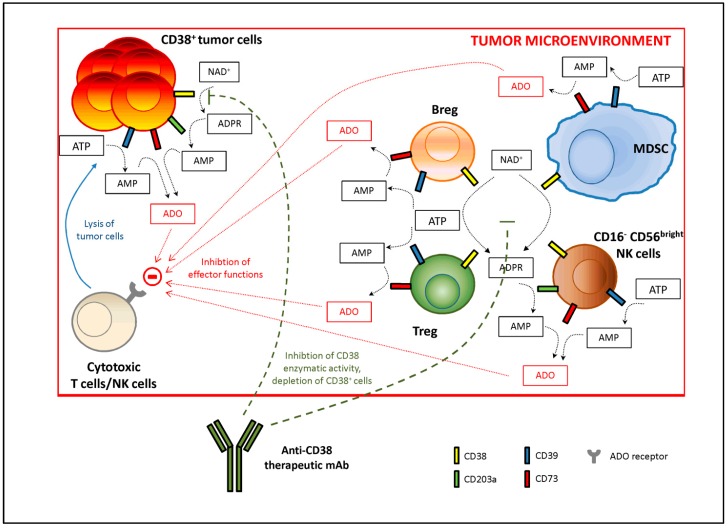Figure 2.
Immune-modulatory tumor microenvironment and mechanism(s) of action of therapeutic anti-CD38 monoclonal antibodies (mAbs). Tumor cells are able to attract within the tumor microenvironment different regulatory subsets, such as regulator T cells (Tregs), regulatory B cells (Bregs), CD16−CD56bright NK cells and myeloid-derived suppressor cells (MDSC). All these cells may co-operate in the production of adenosine (ADO) starting from ATP or NAD+. CD38+ tumor cells are able to generate ADO themselves. ADO produced in the tumor microenvironment is able to interact with ADO receptors on T lymphocytes and NK cells, shutting down anti-tumor immune response. Immunotherapies using anti-CD38 mAbs can overcome this immune suppression by (i) blocking CD39 enzymatic activity and (ii) targeting CD38+ regulatory cells, that are eliminated through antibody-dependent and complement-dependent cytotoxicity or antibody-dependent phagocytosis. This mechanism(s) drives to the elimination of CD38+ tumor cells, leading to an increased therapeutic response.

